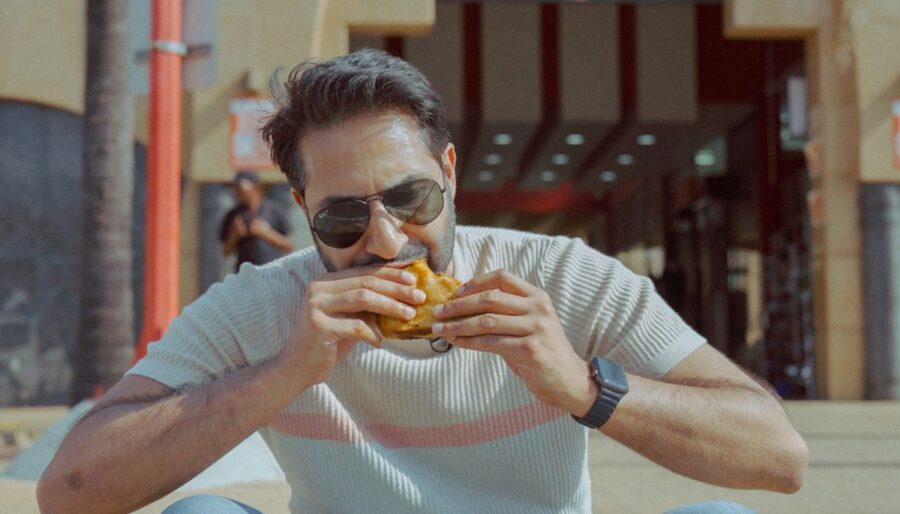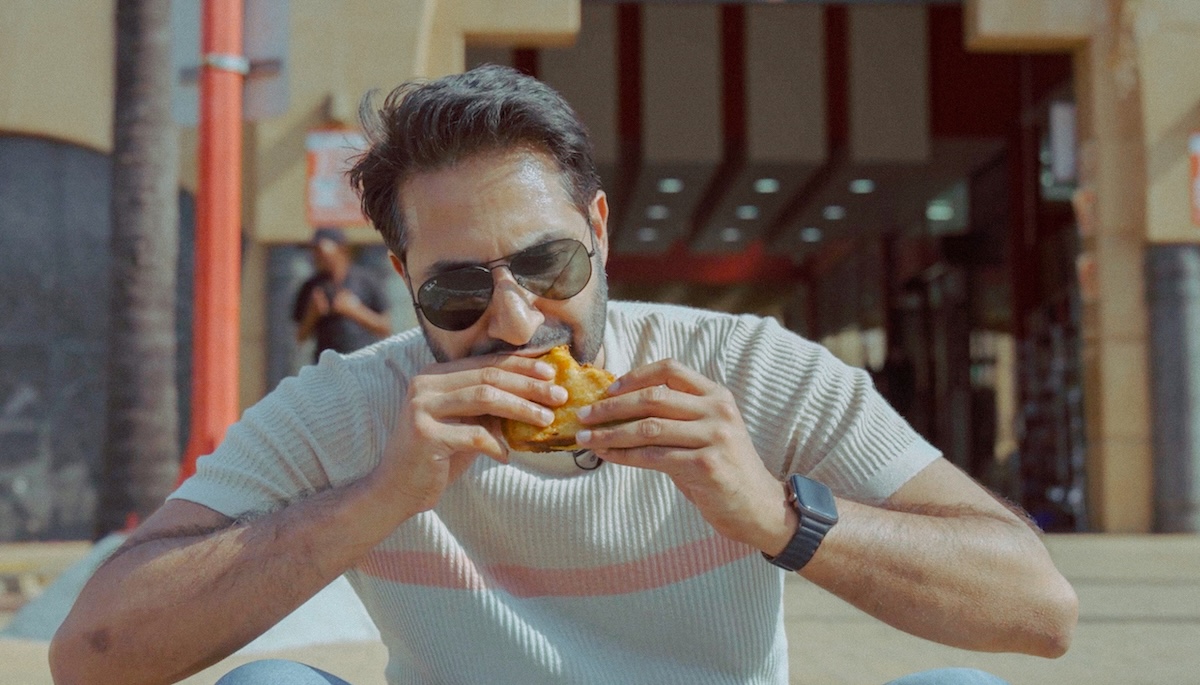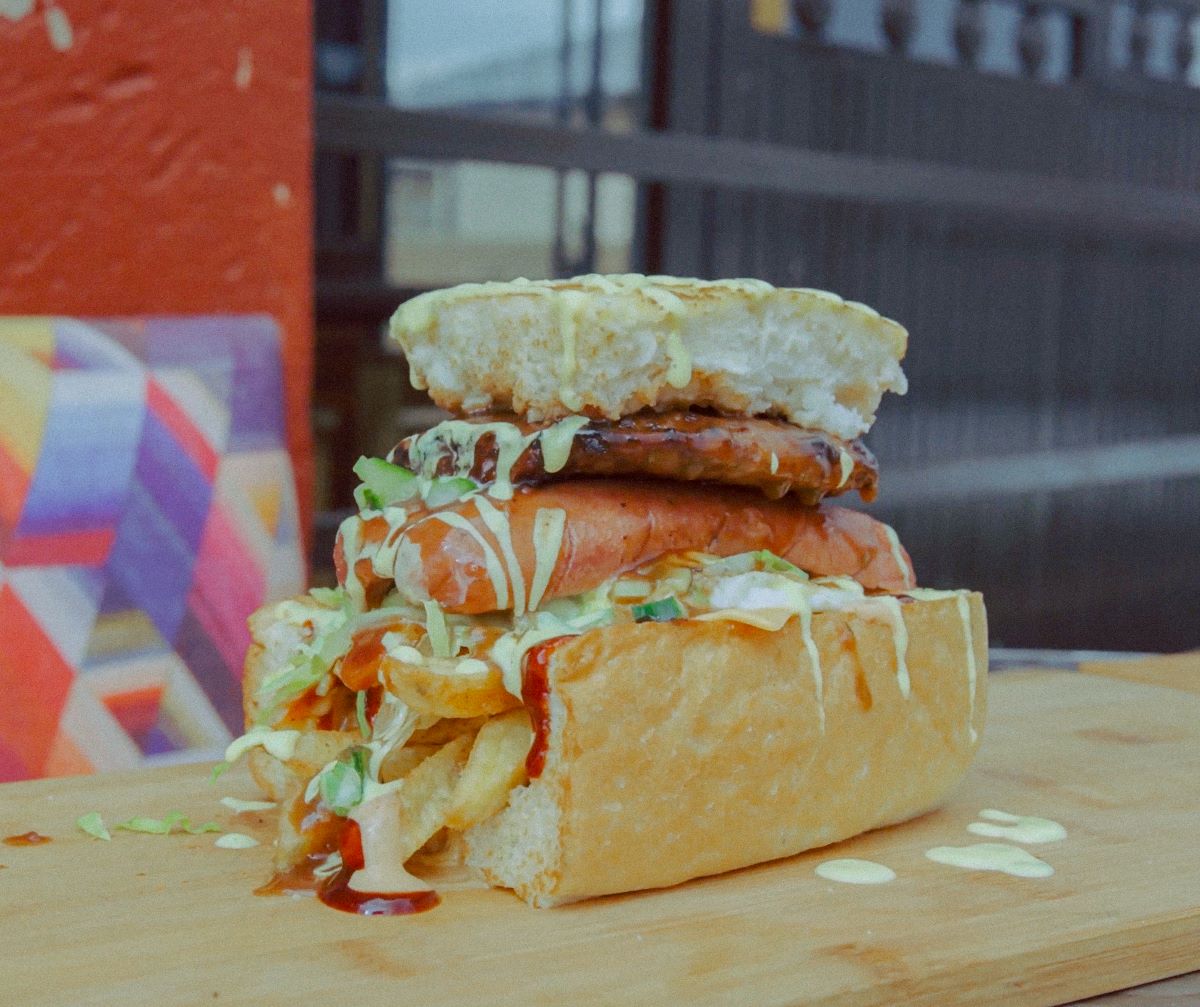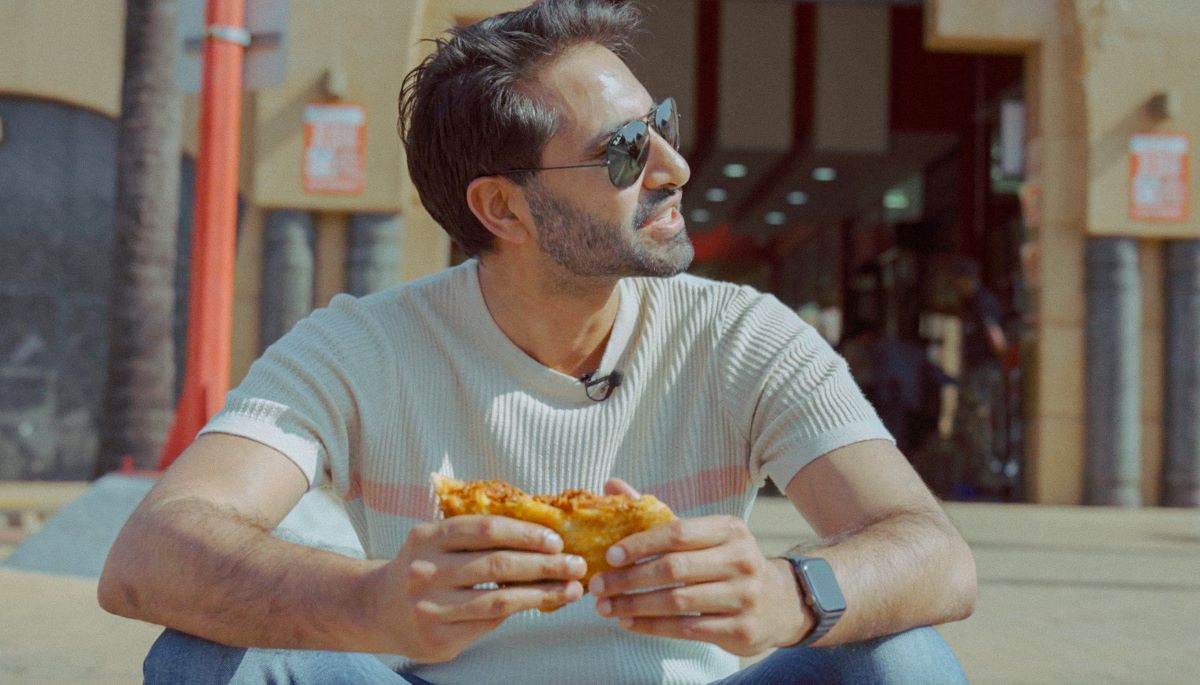
You are what you eat – the best of South African food wrapped up in a new docuseries
Ashfaaq Carim, a South African expat journalist who has worked for Al Jazeera, did not want to go back to the office after covid and instead elected to capture proudly South African food in his series South Africa Eats which was screened as a pilot at the third edition of the Red Sea International Film Festival (RSIFF). […]

Ashfaaq Carim, a South African expat journalist who has worked for Al Jazeera, did not want to go back to the office after covid and instead elected to capture proudly South African food in his series South Africa Eats which was screened as a pilot at the third edition of the Red Sea International Film Festival (RSIFF).
His docuseries contains enough breathtaking shots of Durban, Joburg and Cape Town to touch any South African at home or abroad, and tempt any international viewers to visit SA. The food in it is mouth watering and the music, as Ashfaaq says, captures “the sound of South Africa”. The series has beautiful nuggets of truth like “Joy through food lives in all places” and the fact that we construct our identities and homes through what we eat. We sat down with Ashfaaq for an interview:
Why did you choose South Africa?
I chose South Africa because I wanted to go a lot deeper than just vlogging about food. To talk about food and people is very dangerous and I didn’t want to make any presumptions. South Africa is home, even though I don’t live there much anymore. I know what I know and I know what I don’t know. So I know what I can presume, know where I need to lean on guests appearing on the show to make presumptions, or where I just need to leave things hanging for the viewers to make their own presumptions.

The series opens with a deep dive into sandwiches, the South African way. Why sandwiches first?
The sandwich and its many takeaway incarnations tell the story of this wonderful and complex country. The bunny chow, the kota, the amagunya, the boerie roll, the gatsby, and the good old toasted steak, all tell us how the people of this country were segregated, separated and forced to move in order to survive and sometimes to thrive. However, they also tell us how amazing tastes and sheer deliciousness were born and shared.
What is your aim with SA Eats?
South Africa has a long and complicated journey with colonialism, migration, multiculturalism, separation and apartheid which has produced unique flavours and tastes. The aim is to show how these flavours have leapt over the barriers, connected us and created ways to explore the tension and the healing.
To know these flavours is part of what it means to be South African.
So it is about food but through food you go through this journey where by the end of eight episodes you hopefully understand fully what South Africa is but it feels like all you were really doing was being hungry.

Will you do an episode on the vegan and vegetarian options of these South African foods because there is an amazing array of options now like vegan mushroom biltong?
There definitely is. But the truth is there are a lot of vegetarian options that are indigenous to South Africa. So we rather look at that. I don’t think vegan mushroom biltong is mainstream enough in South Africa to show. I think the beans bunny is. There’s lots of indigenous South African stuff like morogo which is vegetarian, so we definitely will touch on that. Vegan biltong may be mentioned in a ten second throw away, depending on who we’re speaking to. But it’s not something we will go looking for. Bear in mind that meat eating these days, is quite prolific in South Africa…
Did you consider the environmental impact of the food, aka the meat and the packaging? You show all these amazing things that make us feel South African but there’s a lot of single-use waste present in the show.
Absolutely, it’s a show about how South Africa is. If that’s how people are consuming it and throwing polystyrene away – that’s the country and that’s what it is. We can’t impose our view of how the world should be. That’s the reality. We’re there capturing the reality.
Living abroad, do you find the things that you miss foodwise from South Africa?
“Honestly, we generally bring them from South Africa. Our bags are generally completely full,” says SAEats producer, Safiyyah Patel.

Ashfaaq, what have you taken away from the Red Sea Film Festival?
The Arab region has always had super artists, previously most of the movies would come from Egypt, Lebanon and Iraq. I’ve seen a few Saudi films now and they are really smart. When I saw Naga my mind was blown by how intelligent the movie was. So I’m excited to see the art that is going to come out of Saudi Arabia and the region.
When the Red Sea selected the series, Ashfaaq was told by a programmer, “This is amazing. I don’t think I’ve seen anything like it in this genre.” Ashfaaq and his team are looking to get picked up and acquire funding (because all the music is expensive) in order to reshoot the series.
WATCH SOUTH AFRICA EATS TRAILER HERE.
This interview has been edited for length and clarity.
The Red Sea International Film Festival (RSIFF) is located in Jeddah, Saudi Arabia, on the shores of the Red Sea, this rapidly growing MENA region film festival attracts and nurtures worldwide talent.
